Master strategy, stay alert, and manage resources.
Introduction to Bingo
Bingo is a game of chance that has gained immense popularity due to its simplicity and the element of luck that adds an exciting uncertainty. Despite its straightforwardness, understanding the intricacies of bingo can enhance the experience, making it not only a fun pastime but also presenting the possibility of winning rewards.
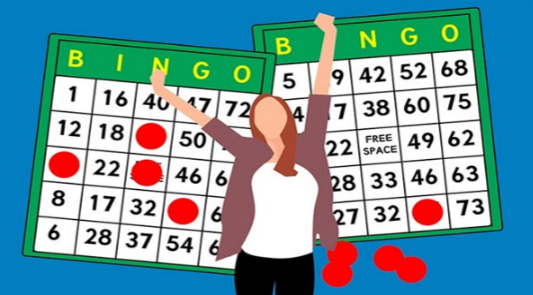
Overview of the Game
Bingo involves players matching numbers printed in different arrangements on cards with the numbers the game host draws randomly. Each card has 5 columns, each column corresponds to one of the letters in the word BINGO. When a player finds the selected numbers are arranged on their card in a row, they call out “Bingo!” to signal the win. One of the hallmarks of the game is its adaptability, evident through the numerous variants like 75-ball, 80-ball, or 90-ball bingo, which define the number of balls used in the game and can drastically change the dynamics and chances of winning.
Players worldwide cherish bingo because it’s not just about the game itself; it’s also a social experience. Whether in vast, echoing halls or via online platforms, bingo is a means to connect with others and share in the thrilling anticipation of each number called.
Importance of Strategy
While bingo is undoubtedly a game of luck, strategies do exist that can potentially increase one’s chances of winning. Contrary to the common belief that each card has the same chance of winning, strategic areas, such as card selection, understanding game patterns, and choosing the right time to play, can influence the outcome of the game.
For instance, some strategies involve the selection of cards based on the numbers displayed, aiming for a diversity in the number groups or following theories like Granville’s or Tippett’s that are often used in the stock market forecasting. These strategies, backed by statistical data, can sometimes predict with some certainty which numbers are more likely to be called based on probability and the inherent randomness of the game. Implementing such strategies doesn’t guarantee a win every time, considering the unpredictable nature of the game, but they can increase a player’s chances of winning over an extended period.
Another crucial strategy is the management of one’s budget. Seasoned players often advise not to spend more than 20% of your monthly leisure budget on bingo activities, ensuring that the game remains a fun, affordable activity and reduces the risk of significant financial loss.
Understanding and employing these strategies effectively requires a mix of statistical insight, patience, and consistent practice, and while they may not alter the game’s outcome significantly, they add a layer of skill to the traditional luck-based game.
Understanding Bingo Strategies
Diving into the world of Bingo requires not just an understanding of the basic rules but also an insight into the strategies that can elevate your game from casual play to a higher success rate. This involves a deep dive into the game’s mechanics, the patterns involved, and the application of strategic play.
Basic Rules and Game Patterns
At its core, Bingo is simple: players are dealt cards with numbers on them in a random layout. A caller announces numbers, and if they appear on a player’s card, the player marks them off. Achieving a specific pattern of marked numbers can lead to a win.
However, the complexity begins with the various game patterns available in Bingo. Traditional winning patterns are straight lines in a horizontal, vertical, or diagonal arrangement. Still, more complex versions involve shapes, letters, and even symbolic arrangements, especially in 90-ball bingo.
One critical rule that players often overlook is the ‘winning shout.’ In the excitement of the moment, remembering to shout “Bingo!” is crucial, as it is the signal that pauses the game allowing for the verification of your win. Failure to do this can result in a forfeiture of the victory if another valid shout is made before you.
Strategies for Higher Winning Chances
Bingo strategies revolve around improving your probability of winning. One such strategy is the Granville Strategy, an analytical approach developed by financial writer Joseph E. Granville, suggesting that the key to winning at Bingo is having a card that mirrors the statistical probability of numbers being called. This means having a balanced card with an equal number of high and low numbers, and an equal number of even and odd numbers.
Another strategy is based on the Tippett theory, devised by British statistician L.H.C Tippett, suggesting that in a 75-number game (common in the United States), the longer the play, the more likely the numbers called will average out. In short games, choose cards with numbers closer to 1 and 75. In longer games, select cards with numbers that tend towards the median number, 38.
A more general strategy is buying more cards. If a player can manage them responsibly, more cards mean more chances to win. For instance, if a player buys 5 cards in a game where everyone else has only 1 card, they have 5 times the chances of winning. However, this strategy must be approached with caution, considering the budget. A player should never spend more than they can afford; a common recommendation is not exceeding 10% of your leisure budget for a single game to maintain responsible gaming habits.
Lastly, choosing the right venue and time also matters. Playing at non-peak times or in venues with fewer players can dramatically increase your chances of winning, as fewer competitors are present. Some statistics have shown that playing at off-peak times, such as between 1 and 4 PM on weekdays, can increase your winning chances by as much as 17%.
Implementing these strategies requires careful thought, budget considerations, and a deep understanding of the game’s statistical underpinnings. While they don’t guarantee victory, they do provide a more structured approach to a game often wrongly assumed to be solely about luck.
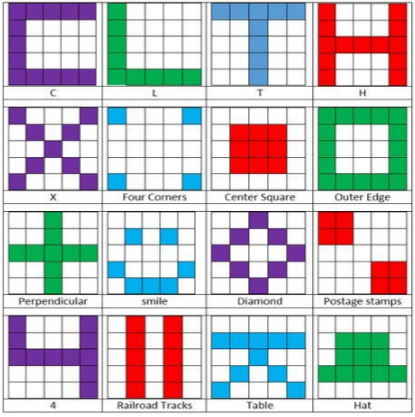
Mastering Card Selection
In the realm of Bingo, the art of card selection is a strategic element often underestimated in its ability to increase one’s success rate. While the game is one of chance, the way you select your cards and the number you play with can influence the odds of winning.
Buying the Ideal Number of Cards
One of the most straightforward strategies to enhance your chances of winning at Bingo is simply to purchase more cards. However, this isn’t just a matter of numbers; it’s a balance between budget, manageability, and probability.
For instance, if you’re attending a bingo night and 30 other players are participating, all holding a single card, purchasing two or three cards for yourself slightly raises your chances. If your budget permits, and you’re competing against hundreds of cards, it may be beneficial to buy 10 cards, enhancing your odds significantly. However, it’s vital to never exceed your budget. An ideal balance might be allocating no more than 15% of your session budget to card purchases, ensuring responsible gaming.
The key here is manageability. Holding too many cards can lead to confusion and increase the likelihood of missing numbers as they’re called, defeating the purpose of playing with multiple cards. The ideal number for most experienced players tends to be around four to six cards per game, as it maintains a balance between increased odds and manageability.
Calculating Odds and Card Choices
Beyond the quantity, the quality of your card selection also plays a crucial role. This involves understanding the odds and picking the cards that statistically have a better chance of winning based on certain theories.
One of the popular strategies used by seasoned Bingo players is to select cards with numbers that mean the probability of them being called is higher. According to the Tippett theory, in a 75-ball bingo game, if it’s a longer game, cards with numbers closer to 38 (the median number) are more likely to come up. Conversely, in shorter games, selecting cards with numbers closer to 1 and 75 might increase your odds.
Moreover, the Granville strategy, a more analytical approach, suggests players should choose cards that have a balance of high and low numbers, as well as a mix of odd and even numbers, reflecting the statistical probability of numbers called.
Additionally, some players prefer cards that do not have any duplicate numbers across them, broadening the range of numbers they hold and potentially increasing the chances of having a match for every number called.
In essence, mastering card selection is about understanding and leveraging probability. It’s not foolproof, given the game’s nature, but it provides a strategic edge, enhancing your gameplay quality and potential to win more consistently. This mastery, combined with responsible gaming habits — such as keeping track of spending and setting limits — ensures a rewarding Bingo experience.
Advanced Play Techniques
Bingo, in its essence, is a game of chance. However, diving into advanced play techniques reveals that experienced players use certain strategies and probability theories to tilt the odds in their favor, transcending the game from pure luck to a skillful challenge.
Expert Strategies and Theories
Advanced players of bingo often turn to more intricate strategies beyond basic card selection. These involve a mix of statistical analysis, behavioral psychology, and probability theories, enhancing their edge in a game session.
One such advanced strategy is the utilization of the ‘Joseph E. Granville Strategy.’ Granville, a renowned financial writer, suggested that bingo is predictable to an extent. His strategy emphasizes the balance on a bingo card, recommending cards with an equal number of high and low numbers, as well as odd and even numbers. The idea is to have a card that reflects the random call nature of the game, statistically increasing the chances of having numbers called during play.
Another complex theory is the ‘Leonard H.C. Tippett Strategy.’ Tippett, a British statistician, theorized that the more numbers called in a 75-ball bingo game, the more those numbers would gravitate towards the median number of 38. Thus, in shorter games, cards with numbers closer to 1 and 75 have a better chance of winning, while in longer games, cards with numbers around the median have a higher probability of success.
Moreover, ‘System Play’ is prominent among regular players, where they form systems based on their observations and experiences, tracking called numbers and identifying patterns over multiple sessions. These self-developed systems are often complex and require consistent tracking and quick adaptation to the ever-changing game dynamics.
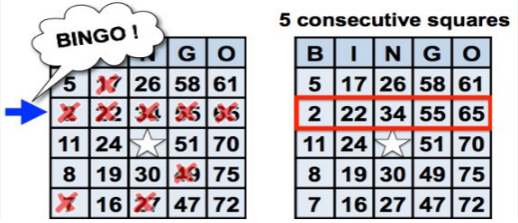
Probability in Bingo
Understanding probability in bingo requires acknowledging that every number has an equal chance of being called. However, as the game progresses, with each number called, the probabilities change, influencing which numbers might or might not be called next.
This aspect of the game leads to the ‘Gambler’s Fallacy’ – the belief that if something happens more frequently than normal during a given period, it will happen less frequently in the future, or vice versa. For instance, if number ’21’ hasn’t been called during a session, one might believe it’s ‘due’ to come up soon. Expert players often caution against this fallacy, advocating instead for a strong understanding of how probability works.
Advanced players also consider the ‘House Edge,’ the statistical percentage the bingo hall holds over the players in the long run. On average, this edge is estimated to be around 10-20%, a figure that players aim to minimize through strategic play, enhancing their efficiency.
Incorporating these advanced strategies and understanding the probability nuances require dedication, quick mathematical analysis, and an ongoing willingness to learn and adapt. These methods don’t override the chance factor of bingo but provide a sophisticated approach, offering a rewarding experience for those who venture beyond casual play.
The Psychological Edge
Success in Bingo isn’t solely dependent on understanding the game’s logistics and number strategies; it significantly leans on the psychological aspects as well. Mastering the mental game and maintaining a psychological edge are crucial in consistently performing well, especially in games like Bingo where chance plays a significant role.
Keeping a Winning Mindset
A winning mindset is more than just a positive attitude; it involves setting realistic expectations, strategic thinking, and resilience. The power of positivity isn’t just a motivational slogan; it’s a practical strategy that has tangible benefits in outcomes. Players who maintain a positive outlook tend to make better strategic decisions, remain calm under pressure, and accept outcomes with grace, ready to play the next game with undeterred enthusiasm.
One key component of a winning mindset is ‘Selective Memory,’ a psychological technique where players remember their wins more than their losses. This approach boosts self-confidence and plays a role in maintaining a positive atmosphere, even when the game gets challenging. However, this doesn’t mean ignoring mistakes but rather learning from them to enhance gameplay strategies.
Furthermore, understanding the concept of ‘Sunk Cost Fallacy’ helps players make rational decisions about continuing to play or stopping after certain rounds. This economic principle prevents players from bad decision-making based on the money and time already invested, focusing instead on potential future gains or losses.
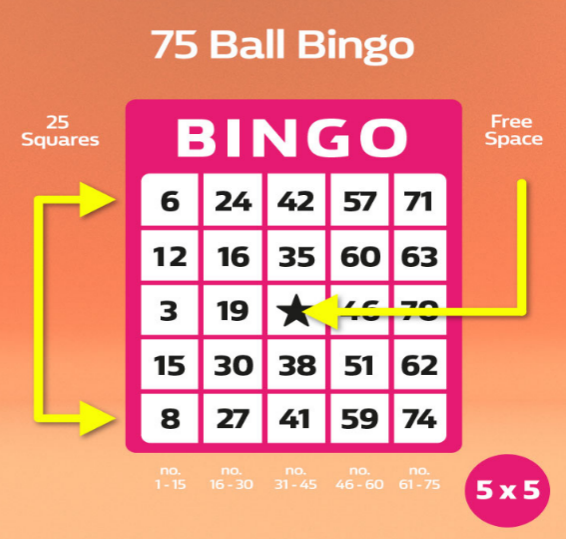
Managing Losses and Bad Streaks
Losses are inevitable in Bingo. How players handle these losses can significantly affect their mental stability and game performance. Adopting specific strategies helps in maintaining composure, ensuring that a loss doesn’t lead to a downward spiral.
The principle of ‘Negative Framing’ is pivotal here. It revolves around the idea of perceiving losses as near-wins, motivating the player to see it as a stepping stone rather than a failure. This subtle psychological shift in perception reduces the mental impact of a loss, encouraging the player to continue playing strategically without being emotionally overwhelmed.
Additionally, setting a ‘Loss Limit’ is crucial. It’s a pre-determined threshold that players commit to, ensuring they don’t exceed a specific budget in chasing losses. This discipline helps maintain a rational mindset, preventing the common pitfall of making increasingly risky bets to recover lost money. Experts suggest that setting a loss limit of about 50% of the budget is a balanced approach, allowing room for recovery without draining resources.
Also, understanding and accepting the ‘Law of Large Numbers’ helps players cope with bad streaks. This statistical theorem emphasizes that the more the game is played, the closer the overall outcomes will be to the expected probability. For Bingo, this means that a losing streak doesn’t continue indefinitely, and odds will even out with continued play.
In conclusion, maintaining a psychological edge in Bingo encompasses various strategies that focus on mental fortitude, discipline, and a balanced perspective on winning and losing. This comprehensive approach ensures that players enjoy the game, keep a healthy attitude towards gambling, and sometimes, beat the odds in unexpected ways.
Navigating the Social Scene
While the thrill of victory is a significant component, Bingo’s social aspect is often a game-changer in the overall experience. It’s not just about playing against others; the community dynamic can heavily influence a player’s success and enjoyment of the game. Understanding and navigating these social nuances are crucial for anyone looking to embrace Bingo fully.
Community Dynamics and Benefits
Bingo halls, both physical and online, thrive on community dynamics. These spaces are more than just venues for a game; they are hubs for social interaction and camaraderie among enthusiasts. Engaging with the community can provide several advantages that go beyond the immediate satisfaction of the game.
- Networking and Support: Regular players often form a network of support, sharing tips, personal strategies, and encouragement. This positive atmosphere can significantly enhance the gaming experience, providing a sense of belonging and reducing the stress often associated with gambling.
- Learning from Peers: Interaction with fellow players offers a unique learning opportunity. Veterans and novices alike share their insights and experiences, contributing to a collective knowledge pool. This information exchange is invaluable, particularly for beginners looking to improve quickly.
- Social Perks and Collaborations: Being an active community member can come with unexpected perks. Players might receive information on exclusive bingo events, bonus cards, or special promotions. Additionally, friendships formed in the bingo community can lead to collaborations during charity events or team-based bingo games, enhancing the social experience.
Collaborative Play Insights
While Bingo is an individual game, there’s a growing trend in collaborative play, with players teaming up to leverage various strengths and insights. Understanding how to navigate this collaborative scene can provide a strategic advantage and increase enjoyment.
- Pooling Resources: In team scenarios, players often pool their resources to buy more cards, increasing their chances of winning. By distributing the cost among themselves (often around $5-$10 per person), they maintain a low budget while maximizing the play area. This strategy requires trust and clear communication among team members.
- Diversifying Number Selection: Collaborative play allows for a broader range of number selections, as different team members may choose varied cards based on their strategies. This diversity increases the group’s chances of hitting a bingo, as the probability of having the winning number somewhere within the collective set of cards is higher.
- Shared Strategies and Coping: Teams can strategize together, deciding on the games to play, analyzing their wins and losses, and providing moral support during loss streaks. This shared experience can make coping with losses easier, as the burden doesn’t fall on one person’s shoulders.
- Enhancing the Social Experience: Collaborative play strengthens social bonds. Celebrating victories or commiserating over losses together leads to stronger friendships and a more enriched social experience. These positive relationships can extend beyond the bingo hall into players’ personal lives.
In conclusion, the social scene in Bingo offers numerous opportunities for those willing to engage. From the practical benefits of shared strategies and resources to the emotional support and camaraderie, being a part of the Bingo community is an integral aspect of the game that enhances both performance and personal enjoyment.
Responsible Bingo Enjoyment
Playing Bingo can be an exhilarating experience, with its rapid pace and the thrill of potential victory. However, it’s essential to approach this form of entertainment with a sense of responsibility. Understanding the importance of setting personal limits and cultivating healthy gaming habits ensures that players can enjoy Bingo sustainably without negative impacts on their finances or lifestyle.
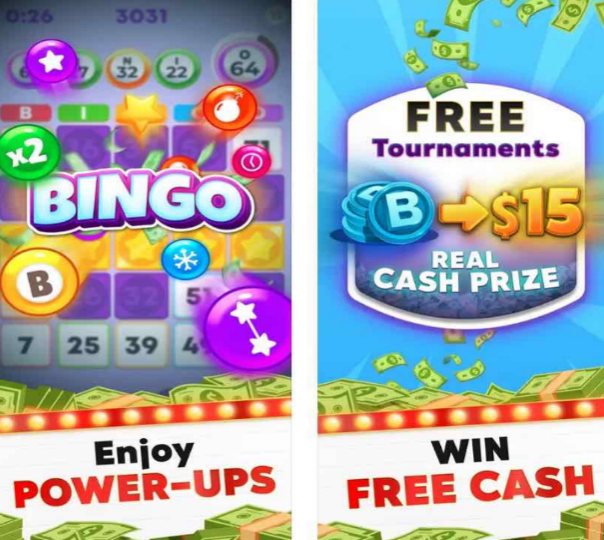
Setting Personal Limits
Before diving into the game, players must establish clear boundaries for themselves, especially regarding time and money. These self-imposed guidelines help maintain a balanced approach to gaming, preventing it from overshadowing other life responsibilities.
- Budgeting for Bingo: Financial control is a cornerstone of responsible gaming. Players should determine a specific budget for their Bingo expenses, separate from their essential living costs. An advisable limit is to not spend more than 10% of one’s discretionary income on gaming activities to avoid financial strain. It’s important to track spending during each game or session, ensuring it stays within this pre-established range.
- Time Management: Just as with financial resources, time is a valuable asset that needs regulation. Players should set a strict time limit for their gaming sessions, perhaps allocating no more than two hours per day to Bingo. Adhering to this limit helps prevent neglect of personal, professional, or familial obligations.
- Recognizing Signs of Excessive Play: It’s crucial for players to stay vigilant for signs they might be overindulging. Symptoms can include a disregard for previously set limits, feeling restless when not playing, or viewing Bingo as a solution to financial issues. Recognizing these signs early helps in taking corrective action promptly.
Healthy Gaming Habits
Incorporating healthy habits into one’s Bingo routine safeguards against potential negative consequences. These practices contribute to a more enjoyable and stress-free gaming experience.
- Balanced Lifestyle: Incorporating other recreational activities besides Bingo ensures a well-rounded routine. Exercise, hobbies, and social gatherings contribute to a balanced lifestyle, preventing Bingo from becoming an overwhelming obsession.
- Informed Gaming: Understanding the rules and odds in Bingo empowers players to make informed decisions. Knowledge about the game’s structure allows for a realistic set of expectations, preventing the pursuit of unattainable outcomes.
- Self-exclusion During Low Periods: If Bingo starts to cause more stress than enjoyment, or if life circumstances make responsible play too challenging, taking a break is a wise choice. Many gaming centers and online platforms have self-exclusion options, allowing for a temporary break from the gaming environment.
- Utilization of Support Resources: Numerous organizations provide support to individuals struggling with gaming responsibility. Accessing these resources during difficult times provides necessary guidance and support. Options include hotlines, online forums, and support groups with fellow players experiencing similar challenges.
By embracing these practices of responsible gaming, players can ensure that their Bingo experience remains a positive, enjoyable leisure activity. It requires consistent self-monitoring and discipline, but the payoff is a sustainable and fulfilling hobby that complements a balanced lifestyle.

